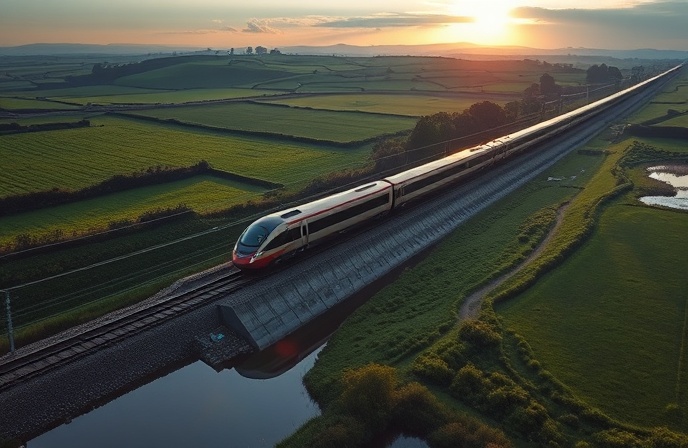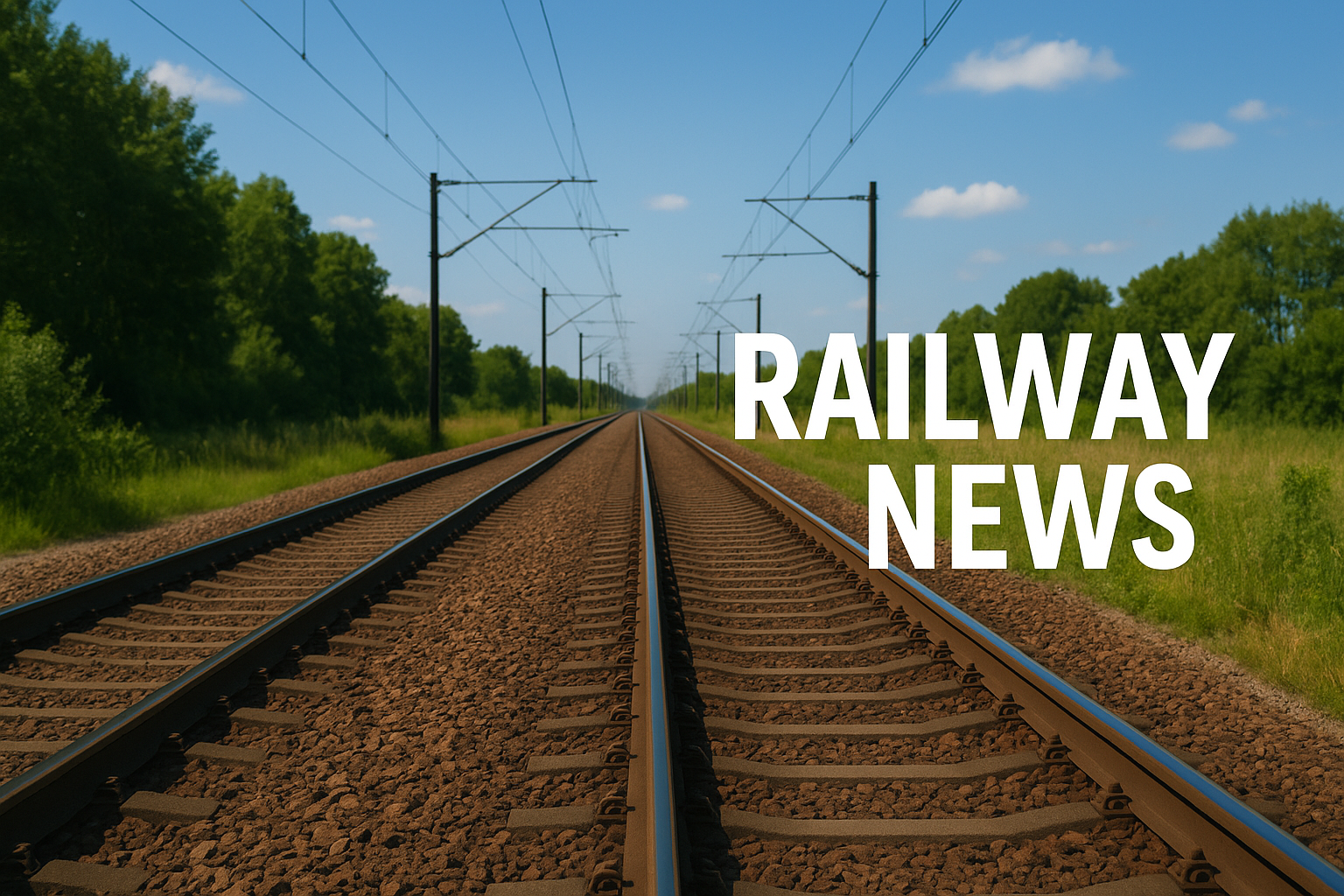SBB-DB: Stuttgart–Zürich Rail Delays Combated by Replacement Trains
SBB and DB deploy replacement trains on the Stuttgart–Zürich route to combat delays, starting July 7, 2025. The trains will run between Schaffhausen and Zurich.

SBB and DB Deploy Replacement Trains to Combat Delays on Stuttgart–Zürich Route
From July 7, 2025, Swiss Federal Railways (SBB) and Deutsche Bahn (DB) will implement a strategic initiative to mitigate the impact of delays on the Stuttgart–Zürich InterCity (IC) service. This move, affecting the Schaffhausen–Zürich section, addresses persistent punctuality issues stemming from infrastructure challenges and congestion primarily on the German side of the route. The collaboration aims to provide consistent service reliability within Switzerland by deploying replacement trains. Who: SBB and DB; What: Replacement trains; When: July 7, 2025; Where: Schaffhausen–Zürich; Why: To address delays on the Stuttgart–Zürich IC route; How: Utilizing DB rolling stock and joint SBB/DB crews. This article will explore the specifics of this operation, its implications for Swiss passengers, and the broader context of cross-border rail challenges.
Addressing Punctuality Concerns: The Root Causes of Delays
The Stuttgart–Zürich IC route, a vital link between southern Germany and northern Switzerland, has experienced increasing delays and cancellations. These disruptions, which primarily impact the reliability of trains entering Switzerland, are largely attributed to infrastructure faults, construction work, and heightened congestion on the German rail network. These issues have a cascading effect, negatively impacting Swiss domestic services. The Schaffhausen–Zürich section, a crucial corridor for commuters and regional travellers, has become particularly vulnerable. The deployment of replacement trains directly responds to these challenges, aiming to provide a more predictable and dependable travel experience for passengers using the Swiss domestic network.
Operational Details: The Replacement Train Strategy
To counteract the effects of late-arriving IC services, SBB and DB will operate substitute trains between Schaffhausen and Zürich. These services will be activated whenever incoming trains from Germany are delayed. The rolling stock will be provided by DB, utilizing DB locomotives and operated by a joint crew of both DB and SBB personnel. This collaborative approach underscores the commitment of both railway operators to minimize disruption for passengers, ensuring adherence to domestic Swiss timetables, particularly on the key Schaffhausen-Zürich corridor. The operational strategy represents an interim solution to maintain a high level of service reliability until long-term infrastructural improvements can be enacted.
Technical Specifications and Interoperability
The smooth integration of DB rolling stock within the SBB network relies heavily on interoperability standards. This includes ensuring compatibility with signaling systems (European Train Control System – ETCS), power supply requirements, and gauge dimensions. Close coordination between DB and SBB technical teams is essential to maintain safe and efficient operations. The use of a joint crew (DB and SBB) facilitates seamless operation and quick response in case of any delays. The deployment of these replacement services also presents an opportunity for SBB and DB to gather data on operating conditions to enhance future collaborative efforts.
Monitoring and Future Development: The Long-Term View
The success of this initiative will be closely monitored by both SBB and DB. Data on train performance, delay reduction, and passenger satisfaction will be collected and analyzed to assess the effectiveness of the replacement train strategy. Both operators are committed to improving the overall situation and maintaining high-quality service delivery. This is part of a wider initiative to strengthen international rail connectivity while upholding high standards for domestic services. The long-term goal includes addressing infrastructure constraints and optimizing the timetable to enhance the punctuality of cross-border trains. Ongoing collaboration will focus on creating sustainable, efficient transportation for passengers and businesses.
Conclusion
The joint effort by SBB and DB to deploy replacement trains on the Schaffhausen–Zürich route signifies a proactive approach to address the recurring punctuality challenges affecting the Stuttgart–Zürich IC service. By directly mitigating the impact of delays originating on the German side, the initiative prioritizes the travel experience of passengers within the Swiss network. The collaborative use of DB rolling stock and joint crew demonstrates a commitment to operational flexibility and cross-border cooperation. While this solution serves as an interim measure, it highlights the complexities inherent in managing transnational rail operations, especially where differing infrastructure conditions and operational constraints intersect. The success of this venture will be evaluated by its efficacy in enhancing passenger satisfaction, and by the data gathered, ultimately helping to shape the ongoing strategic measures in place to improve international rail connectivity and reinforce a commitment to high quality services.
Company Summary
Swiss Federal Railways (SBB): SBB, the national railway company of Switzerland, operates a comprehensive network of passenger and freight services. Known for its punctuality, efficiency, and innovative practices, SBB is a key player in Switzerland’s transport system and is frequently ranked highly in international assessments of railway performance. SBB focuses on infrastructure development and modernization to meet the growing demands of the Swiss railway network and foster efficient links across its various lines, including the one in this article.
Deutsche Bahn (DB): DB is Germany’s primary railway operator, offering extensive passenger and freight services. DB plays a significant role in facilitating cross-border transport. DB is continuously working on various infrastructural improvements, technological innovations, and passenger service improvements to enhance the reliability of its lines and services.





